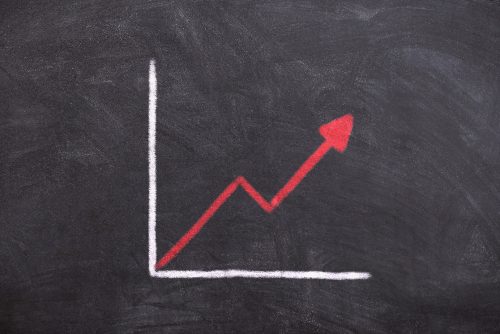GDP ahead of expectations, but fears over a slide backwards due to Omicron

UK GDP figures showed a better than expected improvement in November, prior to the Omicron variant hitting the economy.
The latest figures showed growth of 0.9%, which was better than the 0.4% expected.
It means GDP exceeded its pre-pandemic level for the first time.
But there are fears that the December figures could prove a dampener, due to a rise in pre-Christmas spending in November, and the impact of the new coronavirus variant on businesses.
Danni Hewson, financial analyst at Manchester investment platform AJ Bell, said: “It’s taken 20 volatile months for the UK economy to finally clamber back up to where it had been before COVID wrought its damage. The speed of growth has caught many by surprise considering the lacklustre figures delivered the previous month, although October’s number have been revised upwards to 0.2%.
“One noteworthy change is the easing of supply issues which have dogged the construction sector. It was one bright spot for the UK economy in the early days of the pandemic, but output has slipped in recent months as the world struggled to get goods where they needed to be, and prices went up accordingly.”
She added: “The majority of the new work was in infrastructure and house building is still down considerably on pre-pandemic levels despite the continued heat in the market and suggests the demand/supply equation won’t change any time soon.”
Danni said that most people totting up their Christmas spend won’t be surprised that retail also played a big part in boosting the UK economy in November: “Consumers did spend early and lavishly and trading updates from many retailers suggest that spend did continue through December, but it begs the question of how much disposable income will be left to help the economy power into the new year, particularly as those price increases in energy really begin to bite.
“All those sales added oomph to service sector output. Warehouses became hives of activity, streets were full of couriers dropping off black Friday bargains as the event mushroomed into a full month bonanza and motorways packed full of lorries. With the tax deadline looming accountants worked flat out, life it seemed, had got back on an even keel, with the sector finally punching back to pre-pandemic levels. But Omicron was waiting to change all that.”
She added: “It’s impossible not to look at this latest set of figures and not feel a sense of inevitability. December will have dragged the economy backwards – the question is by how much?
“Which sectors will have been able to push through the latest restrictions? Which will have been impacted by worker illness or dwindling consumer confidence? And why has it taken so long for the production sector to recover in the same way other parts of the economy have done?
“Yes, it was heartening to note that manufacturing was up considerably in the month of November, demands for machinery and equipment, perhaps increased by a favourable tax regime, but that growth has been patchy. Clearly global supply issues have taken their toll, but the economy will need to see more movement here if its unable to rely on consumer spend as inflation remains doggedly persistent.”







